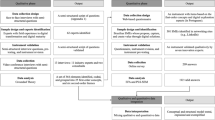Abstract
Organizational Learning (OL) is important for a firm’s productivity growth. According to some literatures, information and communication technology do not support organizational learning and therefore not enhanced productivity. This research however has demonstrated that in the case of manufacturing companies some computer-based systems representing organizational knowledge—knowledge management systems (KMS) do support organizational learning. For OL to take place through KMS, our findings suggest that a deliberate organizational learning structure must be in place within the organization. This article demonstrates how knowledge management systems deliberately developed and implemented by management, can support the development of operating routines for manufacturing industries. KMS, if deliberately implemented for the purpose of empowering employee participation, may be a supporting mechanism for process and product improvement and innovation in manufacturing organizations. Such a structure may results, as our case demonstrates, in a dynamic and iterative employee—management knowledge development process resulting in productivity enhancement.
Similar content being viewed by others
References
Argyris, C., & Schön, D. A. (1996). What is an organization that it may learn?, Organizational Learning II. Mass., USA: Addison-Wesley, Reading
Brown J.S., Duguid P. (1991). Organizational learning and communities of practice: Toward a unified view of working, learning and innovation. Organizational Science 2(1): 40–57
Brynjolfsson, E., & Hitt, L. M. (1998). Beyond the productivity paradox: Computers are the catalyst for bigger changes. Communication of the ACM, August 1998 (accepted for publication). Web address: http://ccs.mit.edu/erik/.
Cangelosi V.E., Dill W.R. (1965). Organizational learning: Observations toward a theory. Administrative Science Quarterly 10(2): 175–203
Cohen W.M., Levinthal D.A. (1990). Absorptive capacity: A new perspective on learning and innovation. Administrative Science Quarterly 35: 128–52
Corley, K. G., & Gioia, D. A. (2003). Semantic learning as change enabler: Relating organizational identity and organizational learning. Handbook of Knowledge Management, Blackwell, 2003.
Crossan M.M., Lane H.W., White R.E. (1999). An organizational learning framework: From intuition to institution. Academy of Management Review 24(3): 522–537
Cyert R.M., March J.G. (1963). A behavior theory of the firm. Englewood Cliffs, N.J., Prentice Hall
Easterby-Smith, M., & Lyle, M. A. (2003). Introduction: Watersheds of organizational learning and knowledge management. The Blackwell handbook of Organizational learning and Knowledge management, UK: Blackwell publishing Ltd.
Fiol C.M., Lyles M.A. (1985). Organizational Learning. Academy of Management Review 10(4): 803–813
Gavetti, G., & Levinthal, D. (2000). Looking forward and looking backward: Cognitive and experiential search. Administrative Science Quarterly, 45, 1. March
Grønhaug, K., & Kolltveit, K. (2005). IS Prosjekter: Implementering og Prosjektsuksess, Magma, årg. 8, nr. 4.
Huber, G. H. (1991). Organizational learning: The contributing processes and the literatures. Organization Science, 2(1) February.
Levinthal, D. A., & March, J. G. (1993). The myopia of learning, Strategic Management Journal, 14. In J. G. March (Ed.), The pursuit of organizational intelligence. Malden, USA: Blackwell, 1999.
Levitt B., March J.G. (1988). Organizational Learning. Annual Review of Sociology 14: 319–340
Liebowitz J. (2006). Strategic intelligence, business intelligence, competitive intelligence, and knowledge management. Boca Raton, Auerbach Publications
Nelson R., Winter S. (1982). An evolutionary theory of economic change. Cambridge, MA, Harvard University Press
Nonaka, I., Reinmõller, P., & Toyama, R. (2001). Integrated information technology systems for knowledge creation. In M. Dierkes, A. B. Antal, J. Child, & I. Nonaka (Eds.), Handbook of organizational learning and knowledge. Oxford: Oxford University Press.
Orlikowski W. J. (2000). Using technology and constituting structures: A practice lens for studying technology in organizations. Organization Science 11(4): 404–428
Scarborough, H., & Swan, J. (2003). Discourses of knowledge management and the learning organization: Their production and consumption. The Blackwell handbook of organizational learning and knowledge management (pp. 495–512). UK: Blackwell Publishing.
Thorsrud, E., & Emery, F. E. (1969). Mot en ny bedriftsorganisasjon, eksperimenter i industrielt demokrati. Oslo, J. G. Tanum Forlag.
Vera, D., & Crossan, M. (2003). Organizational learning and knowledge management: Toward an integrated framework. The Blackwell handbook of organizational learning and knowledge management (pp. 122–141). UK: Blackwell publishing Ltd.
Walsh, J. P. (1995). Managerial and organizational cognition: Notes from a trip down memory lane. Organization Science, 6(3), May–June.
Wang K., Hjelmervik O.R., Bremdal B. (2001). Introduction to Knowledge Management, theory and practice. Trondheim, Tapir Akademiske Forlag
Zhang J., Wang Q., Wan L., Zhong Y. (2005). Configuration- oriented product modeling and knowledge management for made-to-order manufacturing enterprises. International Journal of Advance Manufacturing Technology 25: 41–52
Zollo M., Winter S.G. (2002). Deliberate learning and the evolution of dynamic capability. Organization Science 13(3): 339
Author information
Authors and Affiliations
Corresponding author
Rights and permissions
About this article
Cite this article
Hjelmervik, O.R., Wang, K. ICT-supported knowledge representation for development of routines in industry. J Intell Manuf 18, 479–485 (2007). https://doi.org/10.1007/s10845-007-0055-3
Published:
Issue Date:
DOI: https://doi.org/10.1007/s10845-007-0055-3




